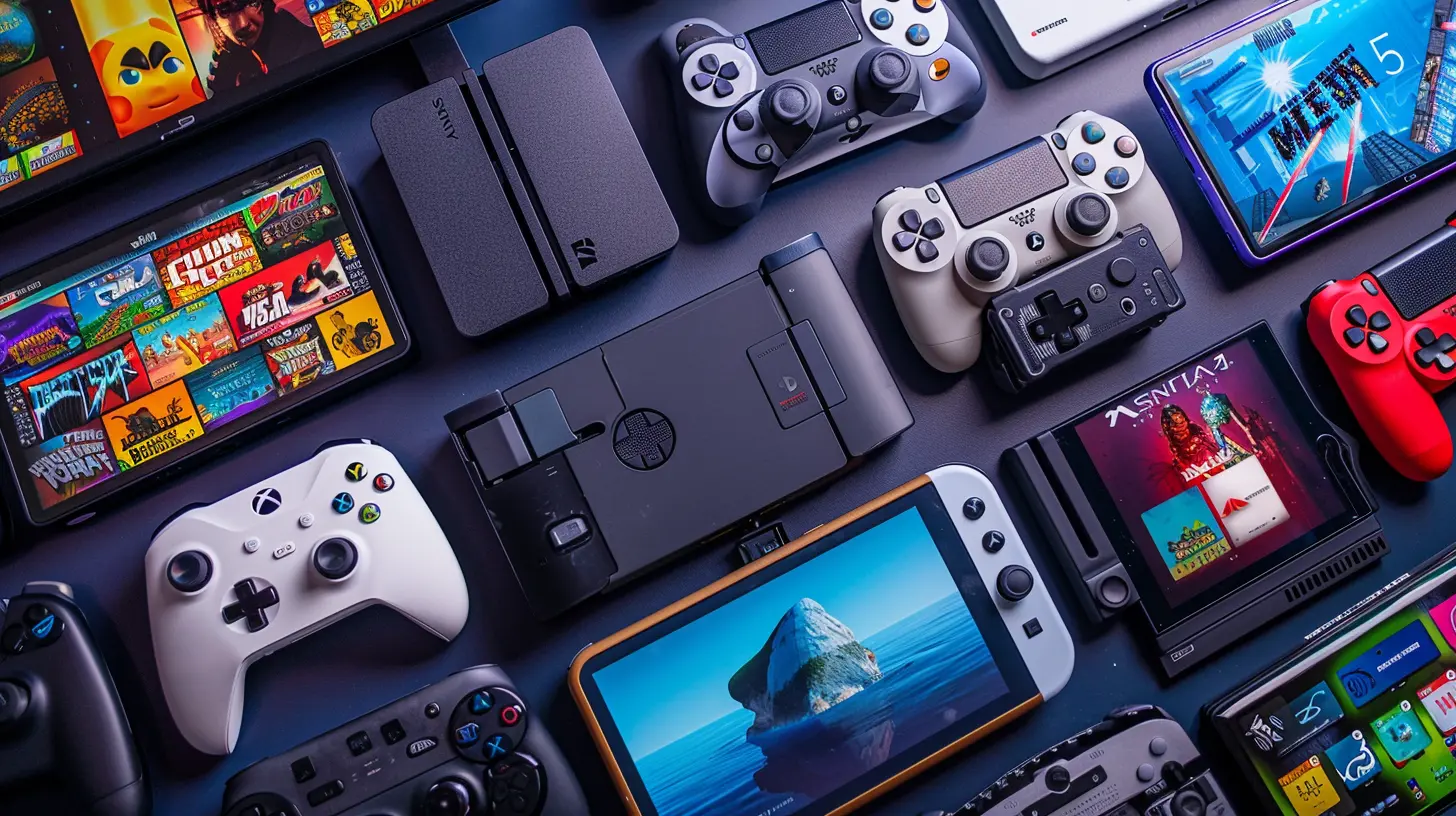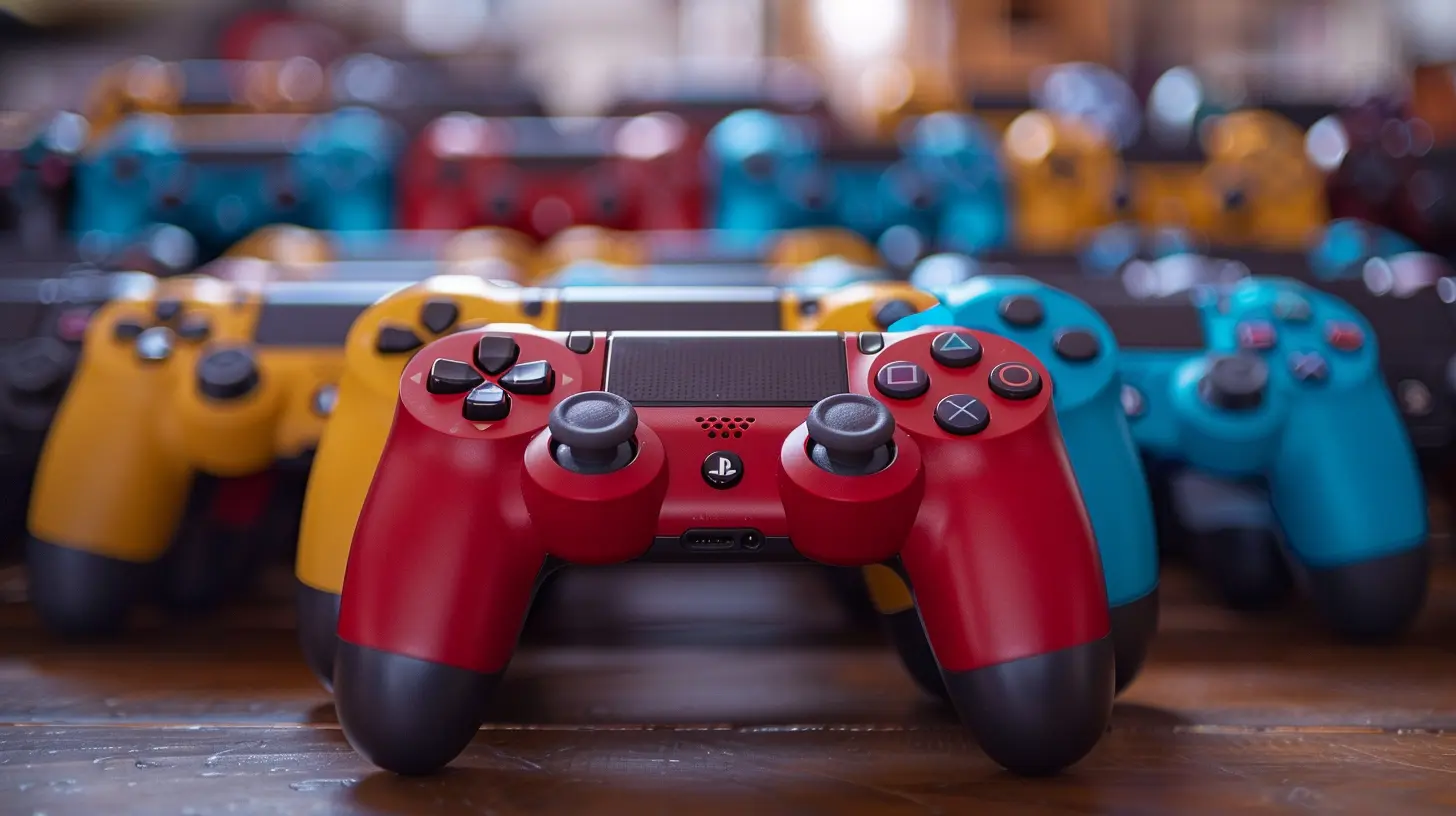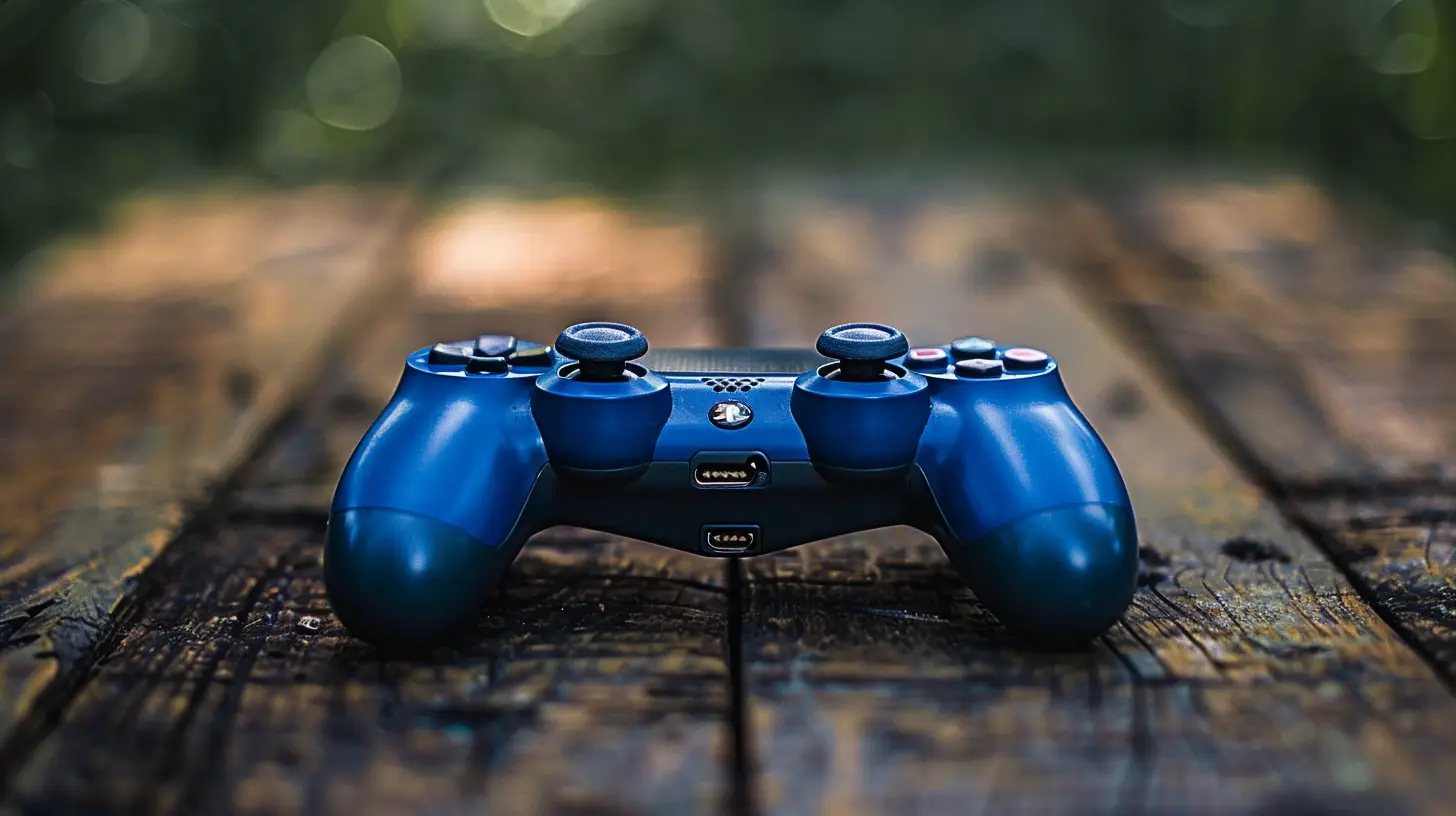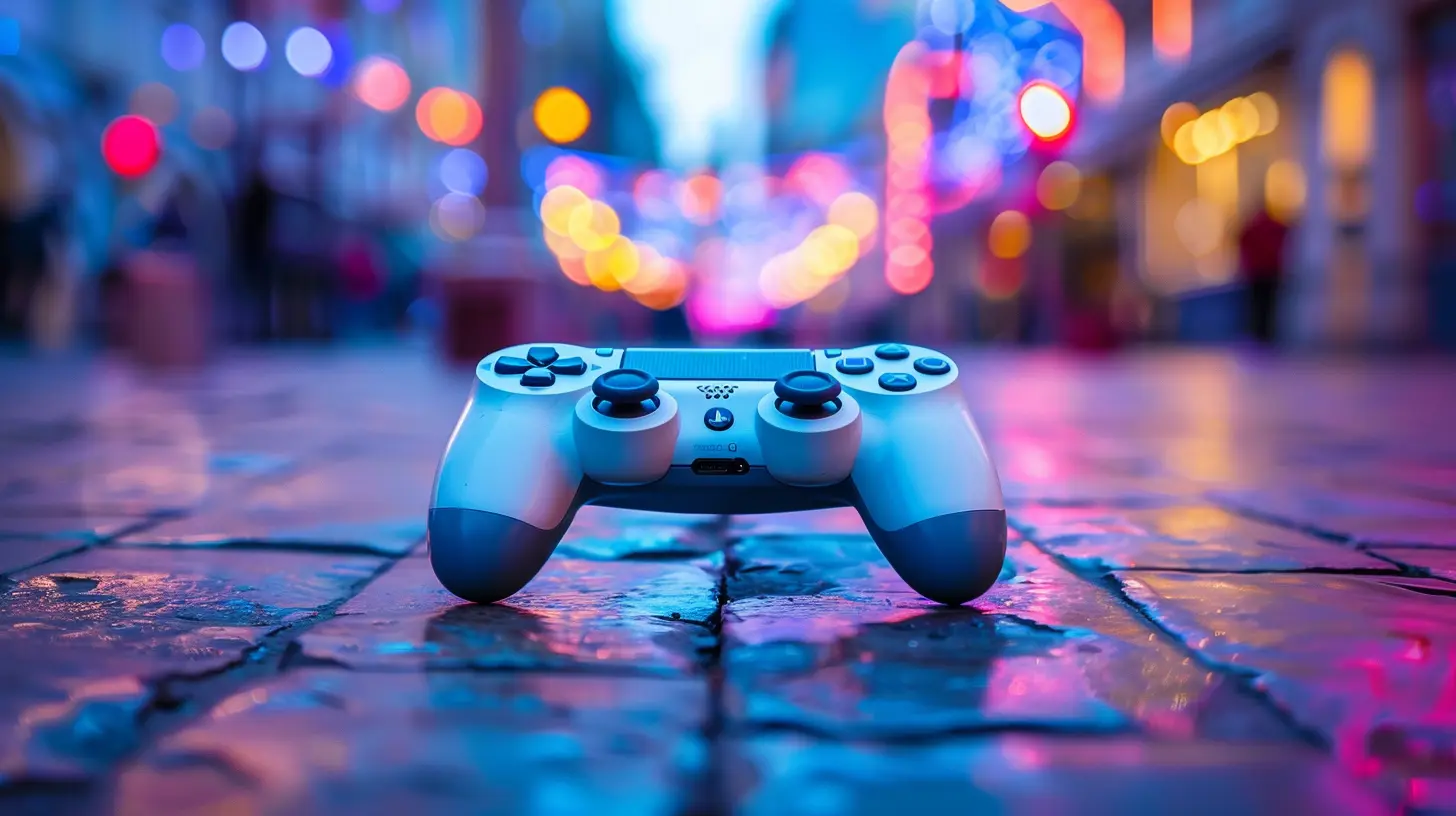The Psychology Behind Console Brand Loyalty
2 August 2025
Let’s be real—if you’ve ever watched two gamers debate about Xbox vs PlayStation or Nintendo vs literally everything else, you know just how real console loyalty gets. It’s not just about specs, exclusives, or controller design. It runs deeper. It's emotional. It’s psychological.
But why do some gamers stick to their favorite console brand like it's part of their identity? Why does the console war feel so personal? Let’s grab a seat, pour some virtual coffee, and dig into the fascinating psychology behind console brand loyalty.
What Is Console Brand Loyalty?
Console brand loyalty is when gamers repeatedly buy and support the same gaming console brand generation after generation. You know the type—the friend who’s been rocking with PlayStation since the original grey box, or the one who defends Nintendo like it’s a family member. They’re not just choosing a console. They’re pledging allegiance.Brand loyalty goes beyond appreciating a product. It’s emotional. It's a relationship. And yes, sometimes it gets irrational. But that’s part of what makes it so fascinating.
The Origins of Loyalty: It Often Starts Young
Most gamers' brand loyalty begins in childhood. Maybe it was your older sibling’s console. Maybe your parents picked one up for you on a whim. Maybe your first real gaming memory involved a certain plumber in red overalls or a green-clad hero with a sword.These early experiences shape how we view brands. Think of them as gaming imprints—emotional moments tied to a certain console. Those warm feelings stay with us, like nostalgia wearing a branded T-shirt.
Think About Your First Console
Remember the thrill of unboxing your first console? That anticipation, that new game smell (hey, it’s a thing), those moments of joy. That emotional high wires itself into our brain, and the brand behind it gets an automatic boost.
The Brain's Role in Loyalty
Let’s talk a bit about brains—not the zombie kind, but the real deal.Our brains lean heavily on cognitive biases to make decisions. It’s a fancy way of saying we like what’s familiar, and we like being right. Once we've chosen a brand and invested in it emotionally, our brain tries to reinforce that choice as a good one.
Confirmation Bias
Ever notice how once you decide something is the best, you start seeing all the reasons to support that belief? That’s confirmation bias at work.If you're a hardcore PlayStation fan, you’ll probably notice every Xbox flaw, complain about Game Pass, and downplay Xbox exclusives. Your brain is subconsciously working overtime to defend your choice.
The Endowment Effect
The more time and money we invest in something, the more we value it. It’s like when people defend a game just because they spent 200 hours playing it—even if it wasn’t all that great. That same principle applies to consoles.If you’ve spent years building a digital library on Xbox or collecting rare Nintendo gear, you're more likely to stay loyal. After all, you’ve got skin in the game.
Social Identity and Belonging
Humans crave community. Gamers? Even more so.Console brands often become part of our social identity. Online forums, YouTube channels, Twitch streams—they're filled with people who align themselves with a particular console tribe. These communities provide validation, camaraderie, and shared experiences.
In-Group vs Out-Group Mentality
We form "in-groups" with people who share our brand, and sometimes we scuffle with the "out-group" who aligns with the competition.Ever been in a Reddit rabbit hole during a console exclusive debate? You’ll see it there in full force. People rally behind their console like it's their home football team. There's cheering. There's trash talk. And there’s a deep sense of pride.
Marketing Magic: Brands Know What They’re Doing
Big gaming brands aren’t just throwing spaghetti on the wall. They know exactly how to tap into our emotions.Console launches, hype trailers, and dramatic reveal events—these are all carefully crafted experiences. The goal? To get you emotionally invested.
Nostalgia Is a Game-Changer
Nintendo does this especially well. All they have to do is drop a Zelda or Mario trailer, and boom—nostalgia hits you like a Koopa shell to the face. That’s no accident. They're banking on the emotional pull of childhood memories to win your loyalty (and your wallet).Exclusives: The Crown Jewels
Let’s not forget about exclusives. Whether it’s "God of War" for PlayStation, "Halo" for Xbox, or "Zelda" for Nintendo—the games you can’t play anywhere else are a massive reason people stay loyal.These aren’t just games. They’re experiences you can only access if you pick a side. That’s powerful.
Exclusives act like tokens of identity. Owning a PlayStation means you’re part of the "Last of Us" journey. Being on Team Xbox might mean you’ve grown up with Master Chief. These stories become part of yours.
Price, Ecosystems, and Convenience
Okay, so sometimes it’s not just emotions—there’s logic too.If you’ve already invested in one ecosystem—like buying digital games, accessories, or subscriptions—it’s just easier to stick with it. Imagine switching consoles and losing access to your whole library. Yeah, not fun.
Also, backward compatibility plays a role now more than ever. Xbox, for example, has leaned hard into this, making it easier for users to carry their past into the future. That builds trust—and loyalty.
Fear of Missing Out (FOMO)
Watching everyone talk about a game you can’t play because it’s on another console? Painful.FOMO is real in the gaming world. And guess what—it works both ways.
If you ride with PlayStation, you might miss out on Xbox Game Pass and its insane value. If you're Team Nintendo, well… you're probably used to doing your own thing by now.
This fear of missing out reinforces brand loyalty because once we commit, we double down to avoid regret. Nobody wants to feel like they picked the "wrong" one.
Can Brand Loyalty Be Harmful?
Honestly, yes—and no.On one hand, loyalty builds enthusiasm, community, and a sense of belonging. On the other, it can lead to toxicity, blind spots, and missed opportunities to try something new.
Some gamers become so entrenched in their console of choice that they refuse to acknowledge the strengths of others. It’s like arguing that your favorite pizza place has the best pepperoni, even though you haven’t tasted the others in years.
Healthy loyalty is great. Toxic fanboy-ism? Not so much.
Breaking the Mold: Can People Switch?
Absolutely. And it happens more now than ever—especially as consoles get more similar and cross-platform titles rise.People switch for better hardware, better services (hello, Game Pass), or simply for change. Sometimes, a killer exclusive is enough to make someone jump ship.
But make no mistake—it’s not always an easy decision. Breaking years of brand loyalty feels like breaking up. There’s emotion, hesitation, and sometimes even guilt (yes, gamer guilt is real).
Tips For Staying Open-Minded in the Console Wars
Let’s be better gamers. Here’s how:- Celebrate differences. Each console has its strengths.
- Try before you judge. Play a game on a different platform if you can.
- Avoid toxic debates. Friendly banter is cool—personal attacks? Not so much.
- Focus on games, not boxes. At the end of the day, it’s all about the fun.
Final Thoughts: Gaming Is Bigger Than Brands
When you peel back the layers, console brand loyalty comes down to human psychology. Emotions, memories, social identity, and even brain biases all play a role.But here’s the thing—we all love games. Whether you're crushing it on Xbox, adventuring on PlayStation, or exploring on Nintendo, you're part of one massive gaming family. Your console doesn’t define you—but the experiences you have on it might.
So let’s respect everyone’s preference and enjoy what gaming really is—a chance to connect, escape, and have fun.
Keep playing, keep exploring, and most importantly—keep an open mind.
all images in this post were generated using AI tools
Category:
Game ConsolesAuthor:

Kaitlyn Pace
Discussion
rate this article
1 comments
Axel Sheppard
This article insightfully explores the deep-rooted psychological factors driving console brand loyalty. Understanding these influences not only enriches our appreciation for gaming culture but also highlights the emotional connections we form with our chosen platforms.
August 17, 2025 at 2:36 AM

Kaitlyn Pace
Thank you for your thoughtful comment! I'm glad you found the exploration of psychological factors and emotional connections in gaming culture insightful.


